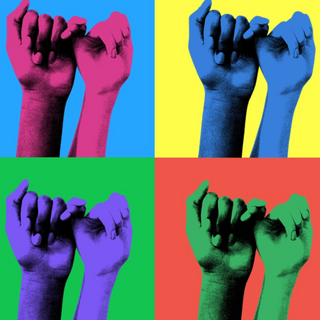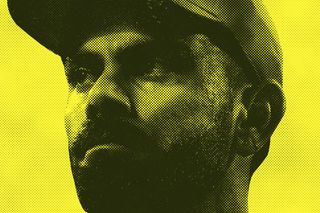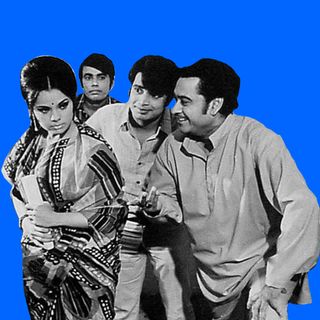
As Virat Kohli Evolves, So Does His Fandom
While Kohli may have risen to fame within the confines of societal norms, his personal life often reflected his unspoken stances on social issues.

In the realm of cricket, the evolution of Virat Kohli’s celebrity transcends the boundaries of the pitch. Over a decade ago, Kohli was described by a publication as: “[A] pudgy teenager with a foul mouth; a young player who in triumph swore, gestured and snarled like a maniac. ‘Brash’, ‘brat’, and ‘arrogant’ before long became easy shorthand to describe Kohli.” From these fiery beginnings to his present image as a multifaceted persona, Kohli's journey has mirrored the shifts in cricketing culture, fandom, and the intricate dance between sports and politics in India.
The hot-blooded intensity of Kohli's early career stood in stark contrast to the composed and tranquil demeanor of his predecessor, the then-captain, M.S. Dhoni. Dhoni was often described by the media as “Captain Cool,” after Gulu Ezekiel’s book bearing the same title. It was at this juncture that Kohli’s aggressive style and passion for the game marked him as a driving force – with the very temperament that set him apart from Dhoni – resonating with a changing political landscape that favored assertive nationalism. Kohli’s rise to prominence overlapped with the country’s political climate in the early 2010s when Indians were being drawn into political discussions triggered by the anti-establishment politics of Anna Hazare, Arvind Kejriwal, and Kiran Bedi, culminating with the landslide victory of BJP in the summer of 2014.
Kohli's persona as a sportsperson thus garnered him favor across many segments of society, including those leaning towards right-wing ideologies. This connection between sports and nationalism became increasingly pronounced as the years went on, echoing within his fandom and beyond. The Caravan’s 2021 analysis, “Battered: Kohli, Modi and the costs of authoritarian leadership,” highlighted this by citing historian Ramachandra Guha’s remark “[BCCI’s] officials worshipped [Kohli] even more than the Indian cabinet worships Narendra Modi.” But has this analogy stood the test of time?
Kohli’s politics has often appeased the masses – due to his active endorsement of the financial decisions of the current political regime and his support for their executive choices. “Kohli has pretty willingly remained a poster boy of the regime and has hardly minded his own public image being leveraged for several government initiatives,” as an article by The Wire notes. Consequently, Kohli stayed in the government’s good books for years.
But an unprecedented factor soon changed that, to an extent. Kohli's trajectory as the first captain in the social media age reshaped the dynamics of cricketing stardom. The spotlight on his life extended beyond the boundaries of the cricket pitch, delving into his personal life in a manner unparalleled in the cases of his predecessors like Dhoni or Tendulkar. In a sense, this mirrors the rise of former English footballer David Beckham’s rise to fame, as documented in Netflix’s Beckham. But the heightened scrutiny – both for Kohli and, many years ago, for Beckham – meant that their off-field actions and relationships were under constant observation, wielding an undeniable influence on their celebrity values and fan perceptions, and reshaping his fanbase’s perception of him in the process.
Naomi Osaka Quitting French Open Sets an Example to Prioritize Mental Health at Work
Again, much like Beckham, what also cemented Kohli’s celebrity status was his female fanbase. The stardom of Anushka Sharma, a leading Bollywood actor whom he went on to marry, also played a part in bolstering his status as a global icon not restricted to the realm of sports. Together, Kohli and Sharma portray a modern partnership that has made him even more desirable to his female fans outside the cricketing world, who were already taken with his charisma.
While Kohli may have risen to fame within the confines of societal norms, then, his personal life often reflected his unspoken stances on social issues: he protested against misogynist trolls blaming Sharma for his poor performance on the field, and shamed cricket fans who targeted his fellow cricketer, Mohammad Shami, for being Muslim. “Attacking someone over religion is the most pathetic thing human beings can do,” Kohli said in 2021 – reportedly violating BCCI’s directive of answering only cricket-related questions. “Everyone has the right to voice their opinion and what they feel about a certain situation, but I personally have never ever even thought of discriminating [against] anyone over their religion and that is a very sacred and personal thing to every human being and that should be left there,” he added.
These were inadvertently political actions that have sparked controversies and friction, particularly within the politically charged space of social media. It marked a shift in the perception of Kohli. His choice to transcend his erstwhile signature aggression and embrace a more mature approach to his sport, enmeshed with his private life, led to a perplexing dichotomy within his fandom.
“While Kohli has never spoken against Hindu nationalism, he has offered very little direct support to the ideology… grat[ing] on his right-wing fans. The last straw for many Hindu nationalists was when Pakistani Hindu cricketer Danish Kaneria offered his congratulations on the groundbreaking ceremony for the building of Ram Mandir at Ayodhya while Kohli didn’t… On social media, Hindu nationalists were now questioning whether their erstwhile hero was ‘Hindu’ enough to be celebrated,” writes lawyer Sarayu Pani.
Kohli had also urged his followers to not burst crackers on Diwali, prompting the accusation of being ‘Hinduphobic.’ “Later that year, Kohli’s decision to leave the Australia tour midway so that he could be present for the birth of his daughter also did not find much support among the right. Their idea of the ideal ‘New India’ man (macho, never putting the family above the country) typified (supposedly) by Mr. Modi didn’t fit with the sensitive, hands-on father that Kohli was keen to be,” Pani added.
Wimbledon To Drop ‘Miss,’ ‘Mrs.’ From Women’s Honor Board
But even as his actions drew ire from right-wing trolls, he earned a new cohort of admirers. His unabashed display of emotions on the field as he blows kisses to Sharma and their daughter, and his open advocacy for issues like gender equality showcase a mix of vulnerability and strength that resonates with a newer audience – one that sees him as a sportsperson symbolizing unity that the game had lost over time, in the face of jingoistic appropriation. It coincided with the alienation of his earlier following – accustomed to the fiery, toxic masculine disposition that initially drew them in.
Besides Kohli’s growth from a foul-mouthed teenager to a sensitive family man, what makes his trajectory stand apart is the complex evolution of his fandom: representing people who look to a pluralistic future, and those who hold on to a homogenizing present. And still, none are clear on his actual political views; they can only go by his actions in his personal life, and on the pitch. In a nation that loves cricket as much as it does, it’s the subtle signs that are arguably more potent – for better and for worse. “The Kohlis and the Dhonis may not want it that way, but their life is their message for the fans. They not only copy the star’s batting stance, haircut, or mannerisms, but also [their] behavior[s] on and off the field. They may not take a politician’s words seriously but shall trust every word the favorite cricketer says… copy[ing] the pointed finger, the middle finger, the chest thump, the fist pump, the aggression, the frustration, the shout, the pout,” notes one article.
The alienation of his earlier fanbase also speaks to the phenomenon of so many Indian men refusing to grow out of their misogyny. While lionizing Kohli for doing the bare minimum of growing up makes little sense, acknowledging his growth could give his young followers a blueprint of the kind of person they can choose to be.
So, in a world filled with celebrities – like Kapil Dev – who have actively used their mass following to dismiss matters like mental health, Kohli serves as that rare sportsperson who advocates for paternity leave and mental health breaks – much-needed stances in a patriarchal society prone to stigmatizing mental health, especially men’s.
Today, Virat Kohli represents a unique figure in Indian sports – a mélange of sporting prowess, personal life in the public eye, and the delicate balancing act of political neutrality. In a landscape where sporting icons are elevated to a quasi-mythical status, Kohli's journey stands as a testament to the evolving nature of fandom, the intertwining of personal and public personas, and the delicate dance between sports and the socio-political milieu. As he continues to lead, bat in hand, his legacy extends far beyond boundaries – both on and off the cricket field. How that legacy will be cemented, in the long term, remains to be seen.
Devrupa Rakshit is an Associate Editor at The Swaddle. She is a lawyer by education, a poet by accident, a painter by shaukh, and autistic by birth. You can find her on Instagram @devruparakshit.
Related


Woe Is Me! “My Boyfriend Forgets I Exist When His Friends Are Around. What Should I Do?”
